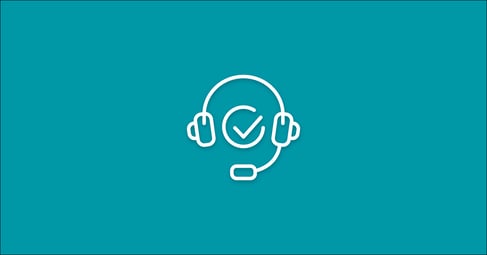Written By:
Tim Stobierski
If you’re working in sales today, then you know as well as everyone that cold-calling is as good as dead. Now that customers have more control—thanks to things like caller ID, and a changing understanding in their minds of how they want to be sold to—the success margin of cold calling is low enough that it isn’t even worth pursuing anymore.
According to HubSpot, only 2% of cold calls result in an appointment (#43 on the list), and it takes an average of 8 cold call attempts to connect with a prospect (#44 on the list). That means you need to put in a lot of work just to make a few sales—definitely not the most efficient way to bring in clients.
It’s no secret that cold calling has gone the way of the dodos, and that we are much better off prioritizing who we contact, and when, in order to make the sales process more efficient. But just in case you need a little kick in the right direction, here are 3 reasons that cold calling is killing your credibility with prospects.
Free eBook: The Definitive Guide to Selling Better and Faster
1. Customers don’t want to be interrupted anymore.
The dynamic between prospects and sales has changed dramatically in the last few decades. In the past, much of sales and marketing was interruptive—television ads, cold calling, etc. directly interrupted the day to day lives of the prospects/audience that it got in front of. And this was largely accepted by the prospects, because they didn’t know any other way. Back then, cold calling worked a lot better than it does today.
Today, prospects are so used to having the power to tune out disruptions (spam blocker, DVR that allows them to skip TV ads, etc.) that they are hostile to the attempts that slip through. The fact that you are calling them when they don’t want to be called annoys them. It makes them angry. These are two emotions that you shouldn’t want any prospect to associate with your business.
Beyond this, though, cold calling makes you seem selfish to your prospects, because it means that you don’t respect their wishes to be left alone. If you’re seen as selfish, there’s no way you’re going to get a sale, because that means there’s no trust.
2. Customers are more informed.
Because of the internet, buyers are more informed about anything. Chances are, if they are someone who actually needs your service, then they’ve visited your website a handful of times, found online reviews from other customers, and have compared you to your competitors.
This means a few things. First of all, it means that prospects don’t need to be sold to in the way they used to accept (i.e., cold calling). Second, it means that you, the cold-caller, don’t know what they already know about you. This can be a real problem if you gloss over important points or disregard negative topics—if the prospect knows that you’re hiding something, even if you’re doing something unintentionally, then you’ll never get them to buy.
And because you don’t know what they know, you don’t know what kind of questions they might ask, which can make you seem unprepared or without knowledge if they ask you something you weren’t expecting. Targeting prospects through social media and other outreach would give you a much better chance of finding out what your prospects know and building a relationship.
3. Customers know the value of their time.
This goes along with points one and two, but it’s worthwhile to talk about on its own. Thanks to Amazon, self-checkout registers at grocery stores, and dealing with machines on the phone, prospects are used to doing a whole lot of the sales process on their own: They research, they find, and they purchase the things they want—often without ever speaking to another human being during the process. It’s a more efficient use of their time, which today’s customers and prospects have grown to value more and more.
This is especially true of Millennials, who seem to have a real disdain for phone calls. And let’s face it, more and more often, Millennials are going to be the generation that you’re selling to, if not already. As Forbes put it in a recent article:
“Why are Millennials shying away from calls? Many see the phone as overly intrusive, even presumptuous. One young worker tells The Wall Street Journal that calling someone ‘without e-mailing first can make it seem as though you’re prioritizing your needs over theirs.’”
The last thing you want is for your prospects to see you as being disrespectful of their time when you reach out to them, because that translates into “greedy” and “selfish”—two adjectives that never helped to close a sale.
Warming Up to Modern Ways
Cold calling just isn’t a useful tool in a salesperson’s arsenal anymore. In addition to hardly closing any sales, the act of cold calling tarnishes your and your company’s reputation in many ways, making it even harder to attract new customers. 90% of sales is about reputation: Establishing it, building relationships, fostering trust. Don’t throw all of that away for the measly 2% success rate of cold calling. There are better ways to generate leads and close sales.







